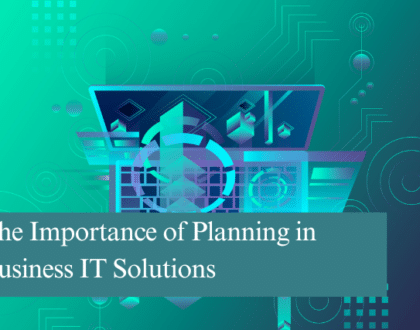
Considering managed services as an investment is a prudent approach for enhancing your company’s productivity. Similar to any investment, the expectation is a favourable return. In this discourse, we will delve into seven financial advantages offered by managed services.
Diminished Hardware Expenditure
Engaging a managed IT service provider significantly reduces your hardware requirements. The equipment you would traditionally pay for, allocate space to, install, and maintain becomes the responsibility of your managed service provider. This transition eliminates the need for a clutter of wires and a stockpile of outdated equipment occupying office space. Instead, the managed service provider’s data centre takes charge. Consequently, you are relieved from the financial burden of acquiring swiftly outdated equipment, the space needed to store it, and the energy consumption it entails. Instead, a straightforward monthly fee covers all your hardware necessities.
Enhanced Efficiency of IT Department
Contrary to the expectation that in-house IT teams might resist a managed services provider, many IT personnel welcome the additional support. Typically, internal IT teams spend excessive time reviving malfunctioning hardware and providing continuous assistance to users. By availing the support of a managed service provider, your in-house IT team can redirect their efforts towards more critical tasks. This shift ensures a truly efficient in-house IT department.
Consistent Monthly Payments
The costs associated with managing your hardware system independently are often unpredictable. Expenses for acquiring new equipment, repairing existing hardware, and appropriately disposing of outdated technology contribute to the unpredictability. Embracing a managed service provider enables you to make standardised monthly payments. This consistency facilitates easier budgeting and allows for more flexibility in other business expenditures.
Round-the-Clock Support
A managed service provider guarantees full-time support irrespective of the time or day of the week. Concerns about problems arising after working hours or during extended weekends become obsolete. Access to a diverse pool of IT experts ensures prompt identification and resolution of any issues. The commitment of a managed service provider is to maintain the uninterrupted operation of your business 24/7.
Cost-Efficient Scaling
Managed service providers assist your company in navigating seasonal variations, sudden growth, and the inherent fluctuations of the business cycle. Instead of independently managing the commissioning and decommissioning of expensive hardware and software, a managed service provider facilitates seamless transitions without substantial upfront expenses. This level of flexibility is challenging to achieve independently.
Decreased Capital Expenses
The financial commitments involved in procuring new hardware, software, and the essential licences and updates can be substantial, especially for emerging businesses. Relying on a managed services provider significantly reduces the initial investment required. A modest monthly fee replaces the considerable upfront costs associated with new servers, software applications, and licences.
Elevated Worker Productivity
The substantial impact of work productivity on the bottom line is universally acknowledged. Problems with IT infrastructure can impede employees from performing their duties, leading to a decline in overall productivity. A managed service provider plays a pivotal role in ensuring the seamless functioning of your systems, thus minimising downtime and optimising worker productivity.
FAQs
Q: How do managed services contribute to cost savings? Managed services reduce operational expenses by offering scalable, subscription-based models, and predictable monthly expenditures.
Q: How does security play a role in managed services? Security is paramount in managed services, with proactive threat management, compliance assurance, and robust data backup and recovery plans.
Q: Can managed services enhance productivity? Absolutely. By allowing internal teams to focus on core competencies and providing 24/7 support, managed services contribute to increased productivity.
Q: How are operations streamlined with managed services? Operations are streamlined through optimised IT infrastructure, regular system updates, maintenance, and access to cutting-edge technologies.
Q: Are managed services tailored for unique business needs? Yes, managed services offer customised solutions, recognising the uniqueness of each business and providing a strategic IT roadmap.
Q: How do managed services ensure future readiness? The financial benefits of managed services extend beyond immediate gains, positioning organisations for sustained success and future readiness.
Recommended Posts

How to Get the Most Out of Your IT Budget
25th April 2025

10 Biggest Cybersecurity Mistakes of Small Companies
18th April 2025

The Importance of Planning in Business IT Solutions
11th April 2025
